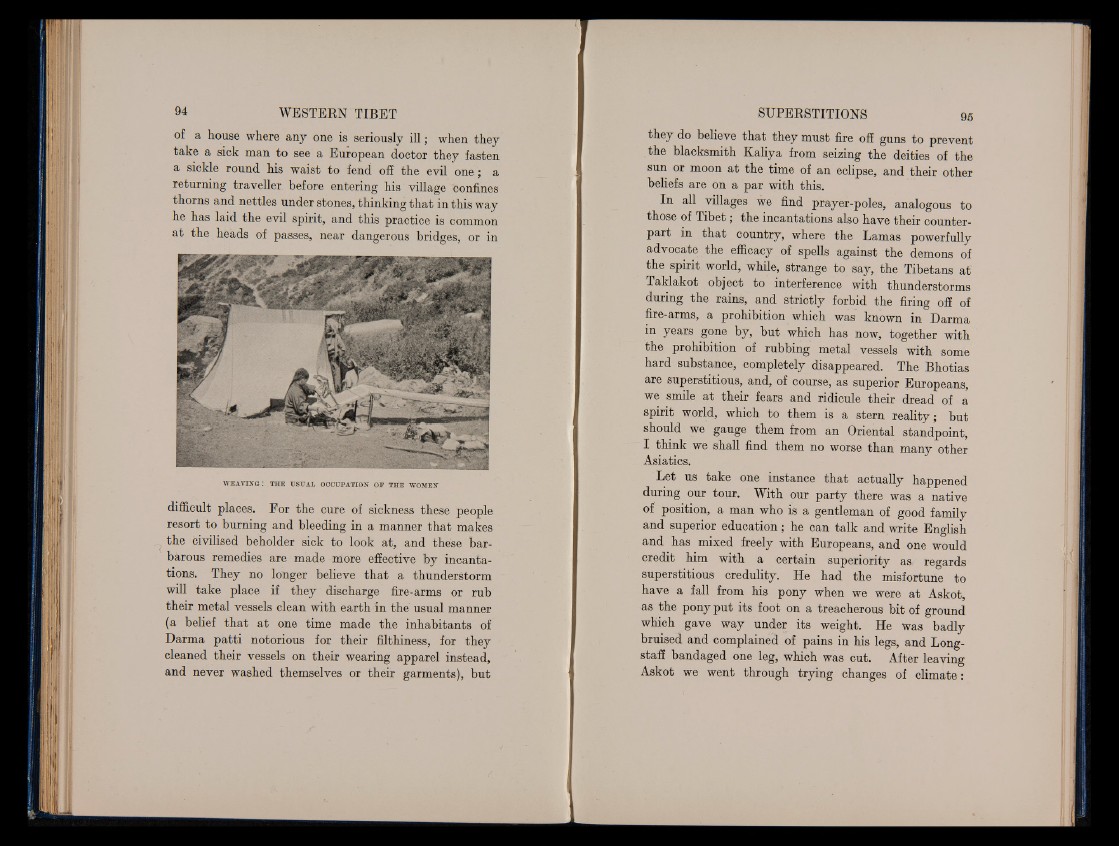
of a house where any one is seriously ill; when they
take a sick man to see a European doctor they fasten
a sickle round his waist to fend off the evil one ; a
returning traveller before entering his village 'confines
thorns and nettles under stones, thinking that in this way
he has laid the evil spirit, and this practice is common
at the heads of passes, near dangerous bridges, or in
WEAVING I THE USUAL OCCUPATION OE THE WOMEN
difficult places. For the cure of sickness these people
resort to burning and bleeding in a manner that makes
the civilised beholder sick to look at, and these barbarous
remedies are made more effective by incantations.
They no longer believe that a thunderstorm
will take place if they discharge fire-arms or rub
their metal vessels clean with earth in the usual manner
(a belief that at one time made the inhabitants of
Darma patti notorious for their filthiness, for they
cleaned their vessels on their wearing apparel instead,
and never washed themselves or their garments), but
they do believe that they must fire off guns to prevent
the blacksmith Kaliya from seizing the deities of the
sun or moon at the time of an eclipse, and their other
beliefs are on a par with this.
In all villages we find prayer-poles, analogous to
those of Tibet; the incantations also have their counterpart
in that country, where the Lamas powerfully
advocate the efficacy of spells against the demons of
the spirit world, while, strange to say, the Tibetans at
Taklakot object to interference with thunderstorms
during the rains, and strictly forbid the firing off of
fire-arms, a prohibition which was known in Darma
in years gone by, but which has now, together with
the prohibition of rubbing metal vessels with some
hard substance, completely disappeared. The Bhotias
are superstitious, and, of course, as superior Europeans,
we smile at their fears and ridicule their dread of a
spirit world, which to them is a stern reality; but
should we gauge them from an Oriental standpoint,
I think we shall find them no worse than many other
Asiatics.
Let us take one instance that actually happened
during our tour. With our party there was a native
of position, a man who is a gentleman of good family
and superior education; he can talk and write English
and has mixed freely with Europeans, and one would
credit him with a certain superiority as regards
superstitious credulity. He had the misfortune to
have a fall from his pony when we were at Askot,
as the pony put its foot on a treacherous bit of ground
which gave way under its weight. He Was badly
bruised and complained of pains in his legs, and Long-
staff bandaged one leg, which was cut. After leaving
Askot we went through trying changes of climate: